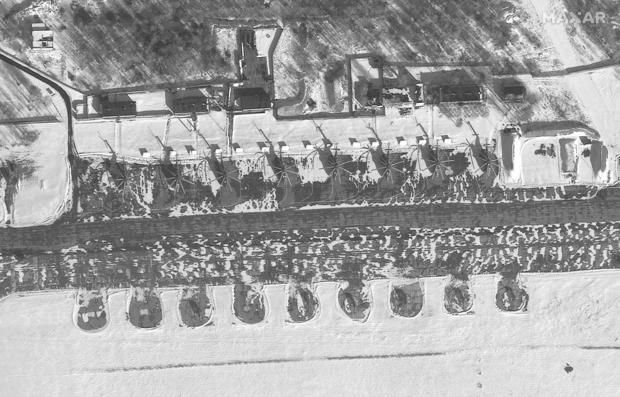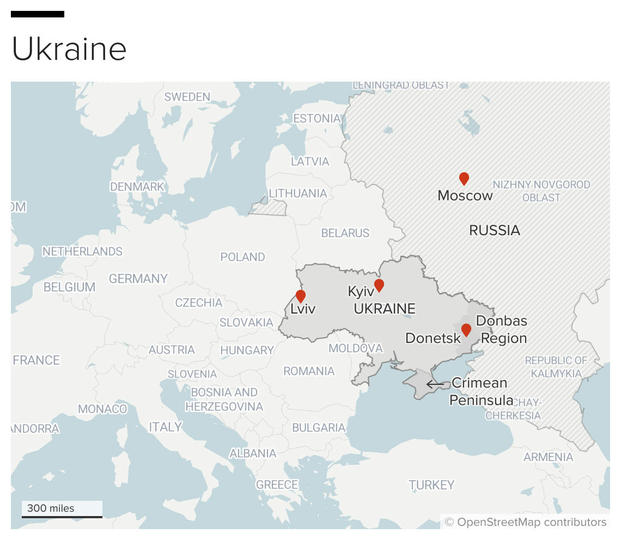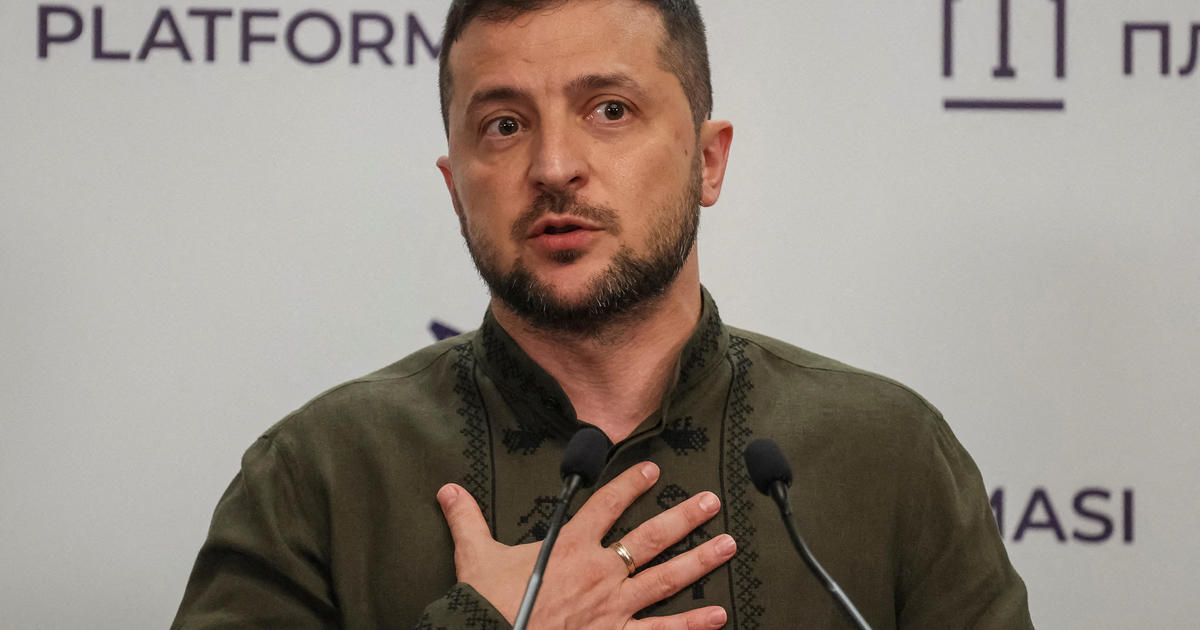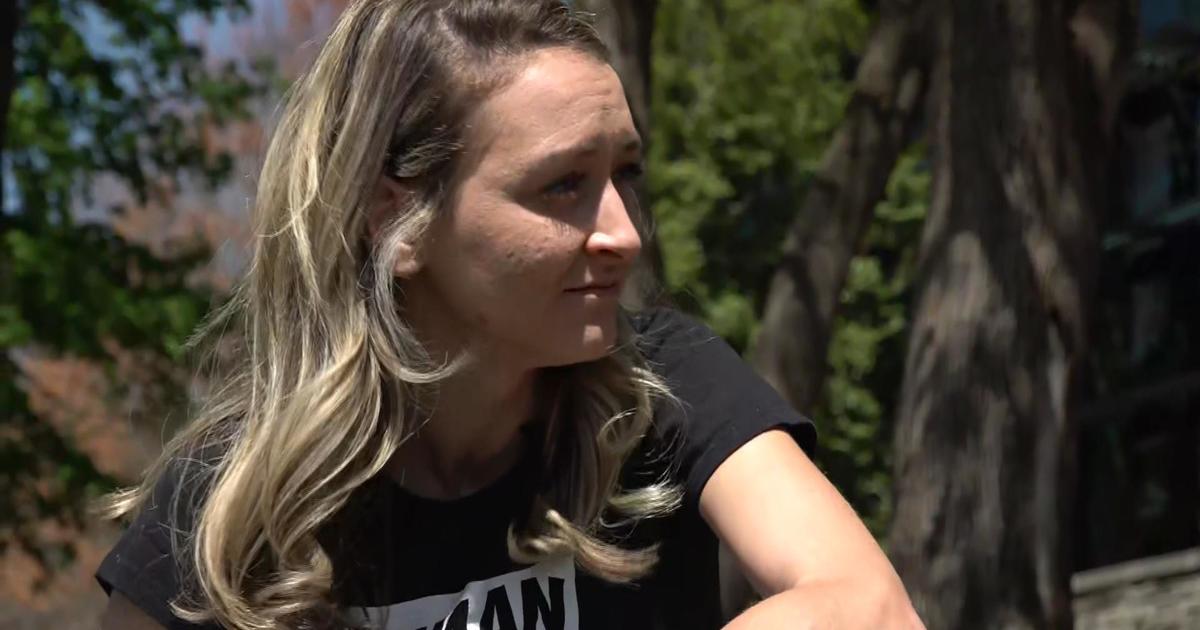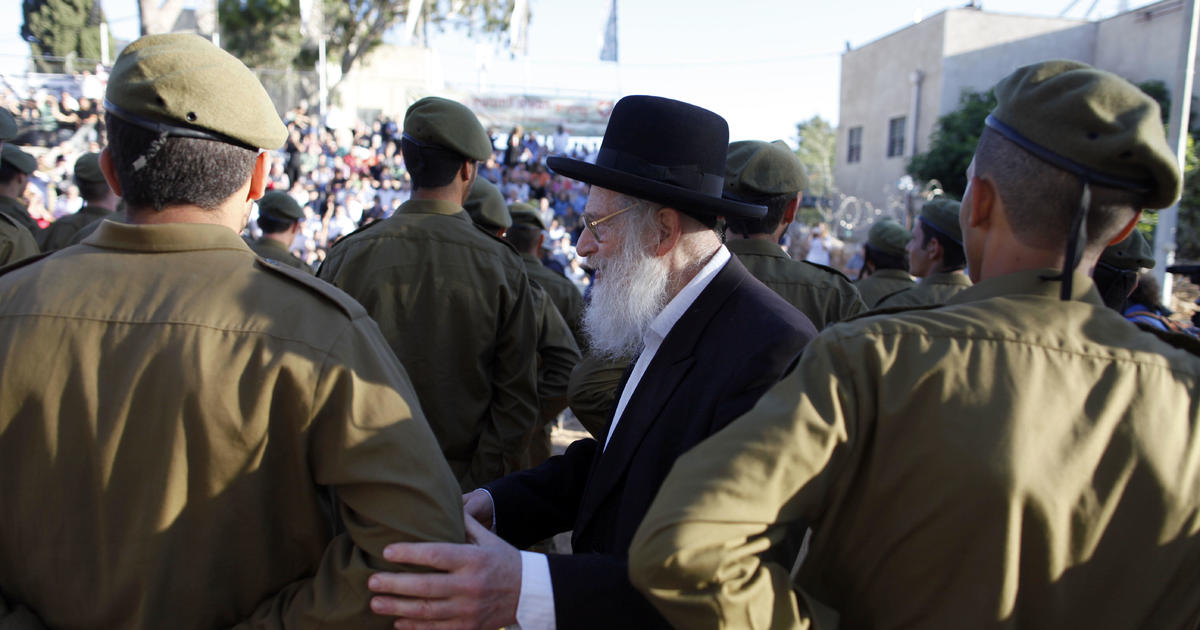"Cautious optimism," but confusion over Russia's intentions in Ukraine
Lviv, Ukraine — U.S. officials have reported a dramatic and worrying shift in Russia's readiness for a potential attack on Ukraine over the past 48 hours, and Russia continues making overt shows of force with military drills in the region. But CBS News senior foreign correspondent Charlie D'Agata reports there was a definite change in the tone on Tuesday morning.
Russia is talking more about diplomacy, and making a big deal of pulling back what may be just a few tanks and troops from Ukraine's borders.
In the city to which the U.S. Embassy in Ukraine has moved all its staff and operations, the conflicting information painted a confusing picture. The State Department said the move from capital Kyiv to the western city of Lviv was a temporary relocation prompted by the ongoing buildup of Russian forces at the border.
The move came as a U.S. official told CBS News that Russia had moved rocket launchers and long-range artillery into firing positions near Ukraine's border. New satellite images show ground troops moving from staging areas toward combat positions, and newly deployed Russian bombers.
Yet the Russian Ministry of Defense released video on Tuesday claiming to show the pullback of some tanks. It said troops were being withdrawn after the conclusion of some military exercises in the border region.
NATO Secretary General Jens Stoltenberg said there was cause for "cautious optimism" on Tuesday, but that the alliance had not yet seen any signs of deescalation on the ground. He stressed that in NATO's view, Russia remained poised for a potential attack on Ukraine.
British Prime Minister Boris Johnson also accused Russia of sending "mixed signals," welcoming what he said were "signs of a diplomatic opening," but warning the latest intelligence was "still not encouraging."
Johnson said Russian forces were building field hospitals near Ukraine's borders, and more battalions were moving closer to the borders, which he said, "can only be construed as preparation for an invasion."
Diplomatic efforts continued, meanwhile. German Chancellor Olaf Scholz was meeting with President Vladimir Putin in Moscow on Tuesday as Russia insists it wants to keep negotiating.
Amid the uncertainty, American IT executive Heath Morrison decided to move his family from Kyiv to Lviv.
"I don't feel a huge amount of anxiety right now," he told D'Agata, adding that while he wasn't worried about his personal safety, he did "worry a lot for Ukraine."
Morrison said his family, and especially his six-year-old son, were a serious consideration, as he was "certainly worried about his exposure to chaos or anything like that."
"We've been paying a lot of attention to all of the news and the circumstances in the last several months," he told CBS News, explaining that they had decided to move if and when they saw major international organizations starting to pull people out of the Ukrainian capital, "not to leave, but to get a little further from Kyiv, where we had more options."
If there is a mass exodus of people from Ukraine, including Americans, it's likely they'll head to Lviv. The vibrant city in the country's west is thought — or at least hoped — to be safer than other parts of Ukraine.
Crucially, Lviv is also only about an hour's drive from the Polish border. The U.S. has troops based in Poland, which, unlike Ukraine, is a NATO member.
D'Agata and his team visited that border and found a typical line of tractor-trailers and a scattering of cars crossing the frontier.
In other words, still all quiet on the western front.
